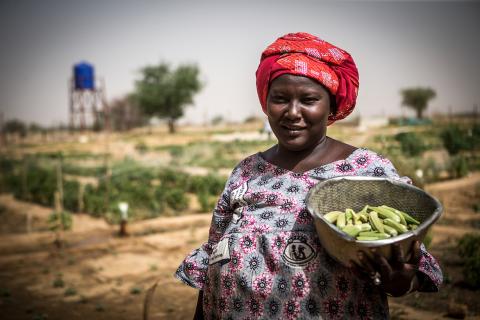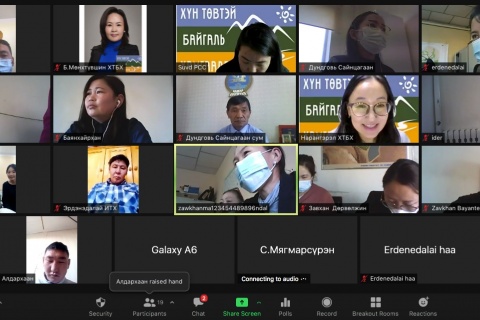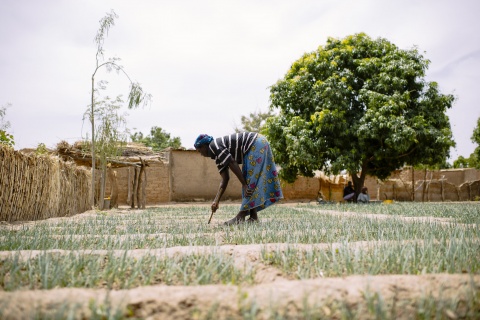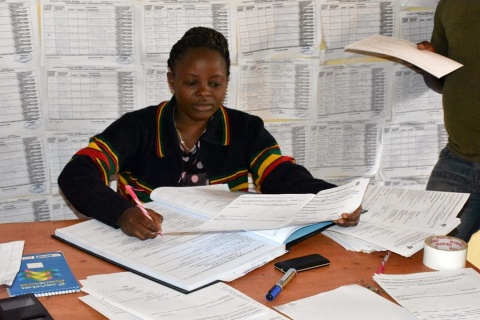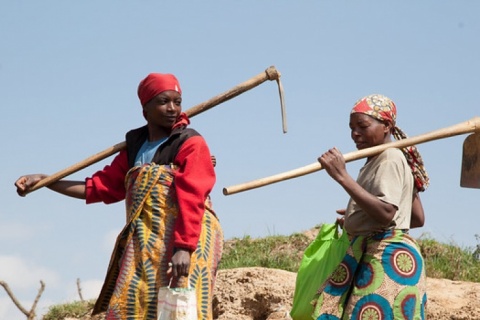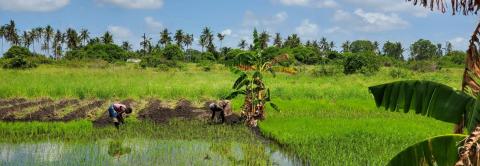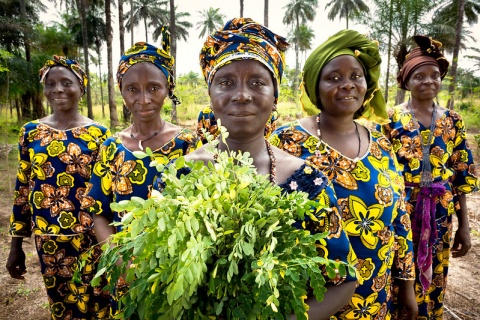Discover hidden stories and unheard voices on land governance issues from around the world. This is where the Land Portal community shares activities, experiences, challenges and successes.
 Follow our
Follow our
Sustainable Development Goals
Blog Series!
Interested in land corruption?
Follow our Land & Corruption Blog Series
for in-depth perspectives from the experts.
Issues
Geographical focus
The recently updated portfolio on Land & Gender provides an overview of the key challenges for women to access land, as well as the status of global policies and practices that aim to promote more equal opportunities to tenure security for women. The portfolio also provides quick access to a curated selection of news, blogs, datasets, publications and other resources on land & women.
In April 2021, Kenya, through the Ministry of Lands and Physical Planning (MoLPP) and the National Land Commission (NLC) achieved an unprecedented milestone in land management and administration by launching the National Land Information Management System (NLIMS) dubbed Ardhisasa.
It’s that time of year again! March means International Women’s Day and the annual meeting of the UN Commission on the Status of Women. It’s not surprising, after COP26 in Glasgow, that this year’s CSW66 links gender equality with climate change. The official theme is ‘achieving gender equality and the empowerment of all women and girls in the context of climate change, environmental and disaster risk reduction policies and programmes.’
“It will be fun to develop land-use planning, if we do it together.” This was a comment from one of the local land managers during 30 online workshops run by PCC to introduce new Gender Guidelines for local land management in Mongolia.
Land has profound meaning to all people. It represents ‘home’ and cultural values, political power and participation in decision making processes; it can provide services for living such as food production and clean water and shelter and it can be used as an economic asset for income generation, as collateral for credit and as a means of holding savings for the future. Though women contribute to almost half of the world’s agricultural production, a mere 15% of these women have legal rights to the land that they work on.
« ‘Je prie Dieu qu’il ait partage et communion entre nous les femmes, que nous parlions d’une seule voix, pour se faire entendre par les autorités, qu’ils nous écoutent et nous soutiennent dans nos initiatives, à vaincre la faim et avoir abondement à manger’ Marthe Ladem, productrice rurale Logone orientale ( voir histoire de vie ‘Avec la femme rurale pour un Tchad sans faim
As observed in many countries, women’s access to land in Burundi is hampered by customary practices. ZOA, VNG and MiPAREC are scaling up a gender-sensitive approach to strengthening women’s rights to land. Experiences from the past prove that sensitization and awareness raising are for a meaningful and successful outcome for women. But there are also many challenges and pitfalls when it comes to working on a topic as women’s land rights.
International Women’s Day today challenges us to ‘break the bias’. This is key when it comes to the climate crisis as women are more vulnerable to climate shocks, yet less able to build resilience due to the cultural and legal biases that frustrate their agency over land and resources. Subjective data offers us ways to spot these biases and target ways of breaking them.
In many countries men control who gets to use, own, and make decisions about land.
“We used to stay in a corner, quiet. If someone came to take our land or exploit our forests, we did not have the courage to try to stop them.” These words from a woman in Mecoburi, Mozambique reflect how women across the world often feel powerless to defend their rights to land and natural resources. For rural communities, land means everything, from the ability to produce crops for food and income to leveraging financial assets.
Women own less than 20 percent of land in the world
Half of the world’s smallholder farmers are women
70 percent of Africa’s food is produced by women smallholder farmers
One of our main goals and missions at the Land Portal is to help democratize the information landscape on land. Our annual Data Stories Contest aims to do just this, by allowing all those using land data to be able to tell their stories in a compelling way.
Secure tenure and effective governance are central to the future of natural resources and agriculture. Although important on their own, tenure and governance are also embedded in the solutions to key global challenges: climate change; environmental management; poverty; gender equity and women’s empowerment; and nutrition and health.

